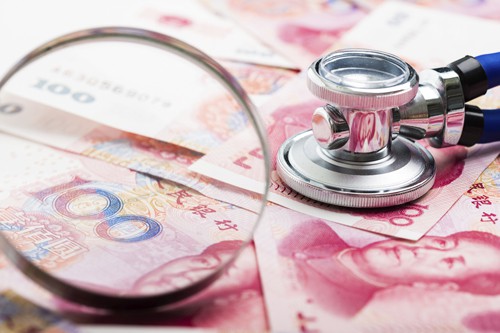
The authorities in China have agreed swingeing price cuts for three drugs in a bid to curb escalating healthcare costs.
The reductions affect GlaxoSmithKline’s hepatitis B and HIV therapy Viread (tenofovir), AstraZeneca’s lung cancer drug Iressa (gefitinib) and Conmana (icotinib) – another lung cancer treatment made by Chinese firm Betta Pharmaceuticals.
Viread’s price has been reduced by more than two thirds to 490 yuan ($75) per month from 1,500 yuan, while EGFR inhibitor Iressa will see its price cut from 15,000 to 7,000 yuan. Conmana – another EGFR inhibitor – sees its price reduced from 12,000 to 5,500 yuan.
The price reductions are a blow to companies hoping to expand in emerging markets such as China, with prospects already dented by the downturn in the global economy, pricing pressure on off-patent drugs and long and uncertain product approval times caused by ongoing regulatory reforms.
Both GSK and AZ have previously suggested that emerging markets are platforms for revenue growth. Now, with China’s attention turning to the price of in-patent drugs as well as generics, there are concerns the entire pharma sector in the world’s second-largest economy may be affected.
The companies affected by the reductions insist however that is not the case, as price reductions would be counterbalanced by volume growth.
GSK said the price reduction came after negotiations with the Chinese authorities and would actually lead to an increase in Viread use, as the price now falls within China’s reimbursement thresholds for medicines. Previously, patients wanting access to the drug often had to fund it out-of-pocket.
Hervé Gisserot, head of pharmaceuticals and vaccines for GSK China/Hong Kong, said in a statement that the agreement “represents a defining moment in the government’s efforts to provide high quality, innovative products at more affordable prices, and ultimately improve patient outcomes in China”.
That aside, two other companies – Celgene and Roche – opted out of price negotiations, with Reuters suggesting they may have considered the price cuts too steep to offset any increase in sales.
GSK has prior history in this regard, however, offering to discount its HIV drug Tivicay (dolutegravir) last year in order to improve access in China. The company has been working hard to restore its reputation in the country in the wake of a bribery and corruption scandal that led to a fine of $487m in 2014.
China’s healthcare market is predicted to grow 13.5% this year to $686bn, with pharma sales rising 12% in local currency terms to $115bn, according to data from BMI Research. However, BMI also expects pharma sales as a proportion of total health spending to decline from a current level of around 17% to just over 15% by 2020.
The price reductions have been levied by China’s National Health and Family Planning Commission, which first signalled its intent to reduce the prices of some high-ticket medicines in March.




